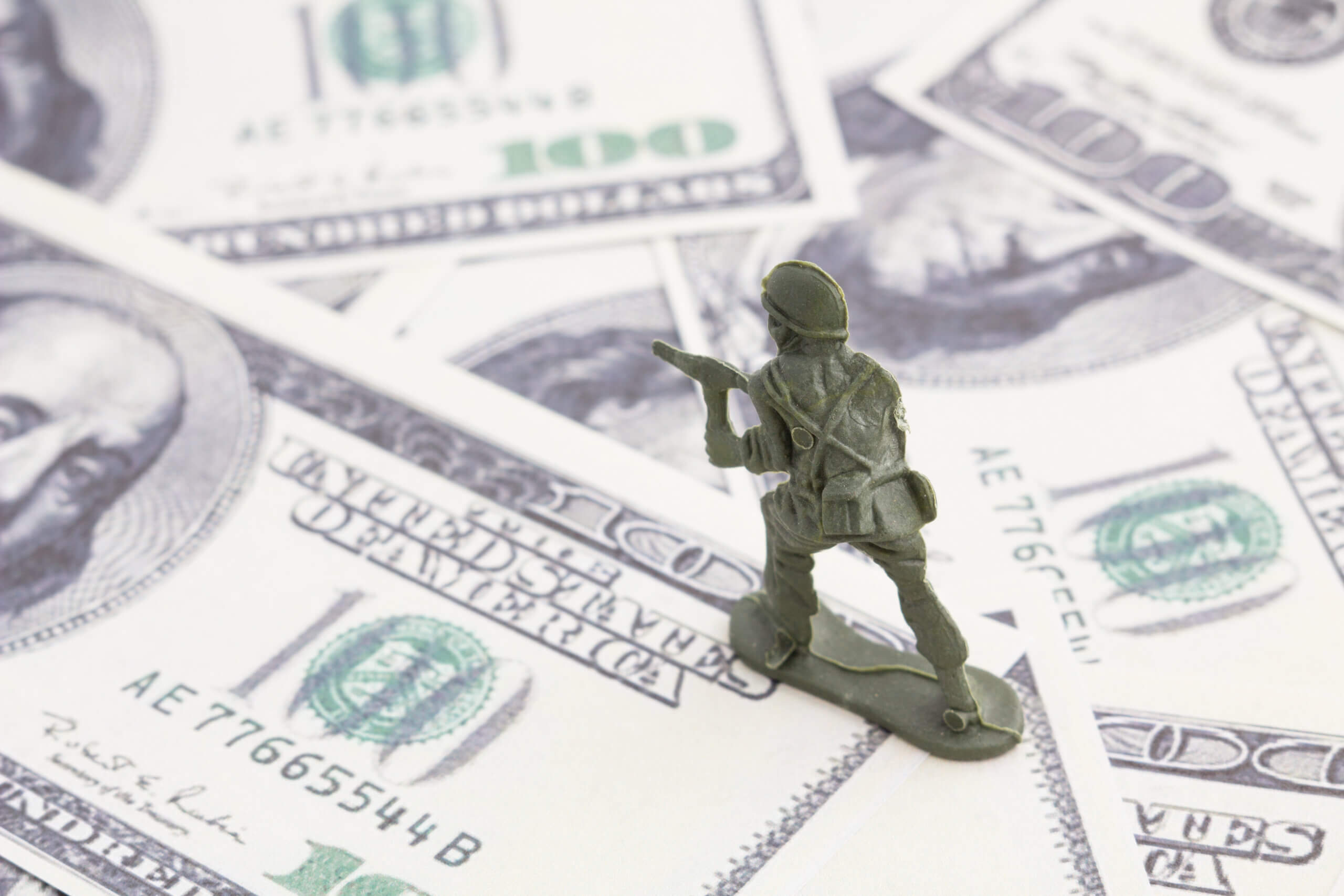
How Does War Affect the American Economy?
Monday, Mar 14 2022
Q: Now that Russia has invaded Ukraine, it really has me wondering; How does war impact the economy and how can I protect my money in case of war?
A: While we all hope the war taking place between Russia and Ukraine won’t spread further, when major countries are at war it does impact the global economy. Here’s how the war in Ukraine is influencing the U.S. economy and American banking and the steps you can take to protect your assets.
How does war affect American banking?
The U.S. Treasury Department has banned all financial institutions in the U.S. from opening or maintaining correspondent banking accounts for Russia’s largest bank (Sberbank) and its subsidiaries. By March 26, Sberbank will be effectively cut off from the U.S. financial system. This directive is part of a group of sanctions the Biden administration has placed on the Russian state-owned VTB Bank, and new debt and equity restrictions on more than a dozen Russian entities. All assets held by the blacklisted companies and institutions are now frozen, and U.S.-based individuals and companies can only conduct business with them if they receive exclusive permission from the U.S. Treasury Department.
However, despite these sanctions, most U.S. banks and credit unions will continue to operate in a regular capacity throughout this time. Financial institutions have compliance officers on staff to ensure all federal laws, including wartime sanctions like these, are followed completely and without interrupting ongoing service. In addition, the financial service industry has experience dealing with similar sanctions from Russia’s annexation of Crimea in 2014, and more recently, sanctions related to China and Venezuela. At Focus Federal Credit Union we will continue to provide the high level of personalized and professional service you’ve come to expect despite an ongoing wave of sanctions.
How does war affect the economy?
Various wars in our country’s history have had an inflationary effect on the economy. During the Civil War, this was caused by the Confederacy printing money to pay its soldiers. During WWII, the U.S. economy was running at almost full capacity with high levels of government spending. These factors, along with a shortage of workers, led to wartime inflation. In addition, the shortage of goods and services, which is common during war, as well as a shortage of raw materials like crude oil, also trigger inflation.
Unfortunately, we have already begun feeling the effects of war on a challenging economy. You may surely have experienced a spike in prices at the pump. In some areas of the country, like San Francisco, prices had already hit an all-time high of $5 at the beginning of March. This increase is a direct result of the many severe sanctions that have been placed on Russia by the U.S. and the European Union, which impact Russia’s ability to sell crude oil. The price for this crucial component of gas has consequently skyrocketed.
Beyond the pump, prices on goods, like grains and metals, are also rising due to increased fuel costs as well as worries about possible future shortages. Russia and Ukraine are also major exporters of wheat and corn, as well as essential metals like palladium, aluminum, and nickel, which are used in a wide range of products from mobile phones to automobiles. An interruption in the supply of these goods due to war automatically leads to an increase in prices.
Yet another factor causing prices to soar is air transport. As of March 7, 2022, Russia has closed its airspace to 36 countries. This means each of these countries must divert shipping planes to routes that are lengthier and more expensive. The extra cost of shipping, of course, gets passed on to consumers.
How can consumers protect their money in case of war?
The stock market has already taken a hit from the war, and many Americans are fearful that the war may spread and/or further impact the economy. Here’s what you can do to protect your assets:
- Diversify your portfolio.
- Take advantage of Treasury Inflation-Protected Securities (TIPS).
- Follow the news, but don’t make any hasty decisions about your investments.
- Diversify your currency holdings.
It’s important to learn all about the ways war can impact the economy and how you can protect your assets during wartime. This brief overview of wartime impacts on the economy, along with some actions you can take, is a great start. We at Focus Federal Credit Union encourage you to learn more from other sources and, if you’d like to discuss more, feel free to call, click or stop in. We intend to keep you in front of the information that matters to you when it comes to your finances.




